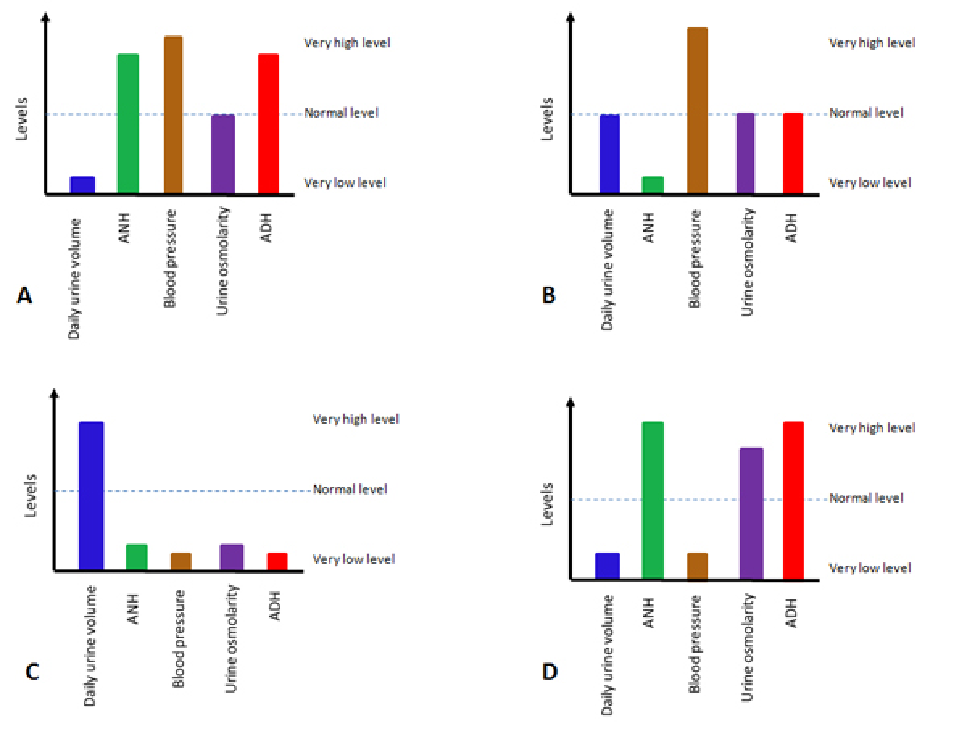A doctor suspects his patient has diabetes insipidus. What is the most likely match to the blood and urine profile of this patient?

A. A
B. B
C. C
D. D
Clarify Question
What is the key concept addressed by the question?
What type of thinking is required?
Gather Content
What do you already know diabetes insipidus? What other information is related to the question?
Choose Answer
Given what you now know, what information is most likely to produce the correct answer?
Reflect on Process
Did your problem-solving process lead you to the correct answer? If not, where did the process break down or lead you astray? How can you revise your approach to produce a more desirable result?
C. C
Clarify Question
What is the key concept addressed by the question?
· This question is asking about the diagnostic features of diabetes insipidus.
What type of thinking is required?
· Apply level:
o You are being asked to take what you already know and use, or apply, it to the characteristics of the bloodwork of someone with diabetes insipidus.
Gather Content
What do you already know diabetes insipidus? What other information is related to the question?
· Diabetes insipidus is the result of the lack of recognized antidiuretic hormone.
· Antidiuretic hormone cause water to be reabsorbed during urine formation, so its effect is to concentrate the urine.
Choose Answer
Given what you now know, what information is most likely to produce the correct answer?
· An individual with diabetes insipidus lacks functional antidiuretic hormone.
· The only test that shows antidiuretic hormone that is less than a normal level is choice “C”.
Reflect on Process
Did your problem-solving process lead you to the correct answer? If not, where did the process break down or lead you astray? How can you revise your approach to produce a more desirable result?
· Apply level:
o Answering this question correctly depended on your ability to use the characteristics of someone with diabetes insipidus in a new situation. If you got an incorrect answer, did you remember that diabetes insipidus is caused by the lack of a functional hormone that concentrates the urine, or that the hormone is antidiuretic hormone? Did you have trouble extending the characteristics of diabetes to determine the correct answer?
You might also like to view...
What do the DNA sequences found at the origins of replication signify?
What will be an ideal response?
Ghrelin is secreted when the stomach is full. Indicate whether the statement is true or false
According to the fossil record, which of the following jawed fishes diversified in the Devonian and Carboniferous periods, but left no direct descendants?
a. placoderms b. ostracoderms c. osteolepiforms d. conodonts
In all vertebrate animals, development requires _____
A) a large supply of yolk B) an aqueous environment C) extraembryonic membranes D) a primitive streak